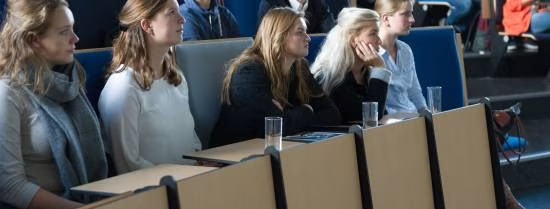True scientific breakthroughs and significant scientific solutions are often due to an interdisciplinary approach. The complexity and scope of today’s scientific and societal questions and problems demand an academic attitude which does not remain confined to a single discipline. For this reason, professors and students from different academic disciplines are gathered in the Erasmus Honours Programme.
For most EHP-students, the interdisciplinary approach will prove to be a challenge as, in their second year they only just begin to realize what it means to study an academic discipline, with it’s own typical ‘worldview’. In High School various ‘subjects’ are taught. When attending classes in ‘Economy’, how many realized they were introduced in the world of the homo economicus; and who has wondered during ‘Maths’, how the world can be approached as a numeric whole? At University students grow, and maybe even excel in the discipline of their choice, but as they learn and grow, they are also limited by the boundaries of their discipline.
Already in 1936, in The Crisis of European Sciences, the German Philosopher Edmund Husserl expressed his concerns about the ongoing differentiation and even disintegration of the scientific world; each science developing its own concepts, vocabulary, methods and specializations. Husserl’s dream that Philosophy might reinstate itself as a unifying discipline, did not come true. His prediction of ongoing differentiation however, did. An interdisciplinary approach offers a challenging response towards the divergence of scientific specializations; not only because it broadens the horizons of individual disciplines, but also because it appears to be a necessary approach, considering the complexity of many issues at hand. Phenomena like ‘poverty’ or ‘well-being’ demand a simultaneous and collaborative psychological, medical, sociologic and economic approach. Interdisciplinary thinking is probably one of the greatest challenges to science today. The problems to be met, however, are not to be underestimated. It requires at least an open attitude towards other disciplines and other perspectives. This is precisely what the EHP tries to encourage and facilitate.
Interactive Learning
The educational environment of the EHP differs from the usual teaching settings. Due to the multidisciplinary background of the group – students and teachers -, different, and even conflicting perspectives will be addressed and discussed. Without doubt, the learning practice of an interdisciplinary attitude will help EHP students in their further academic career and beyond.
